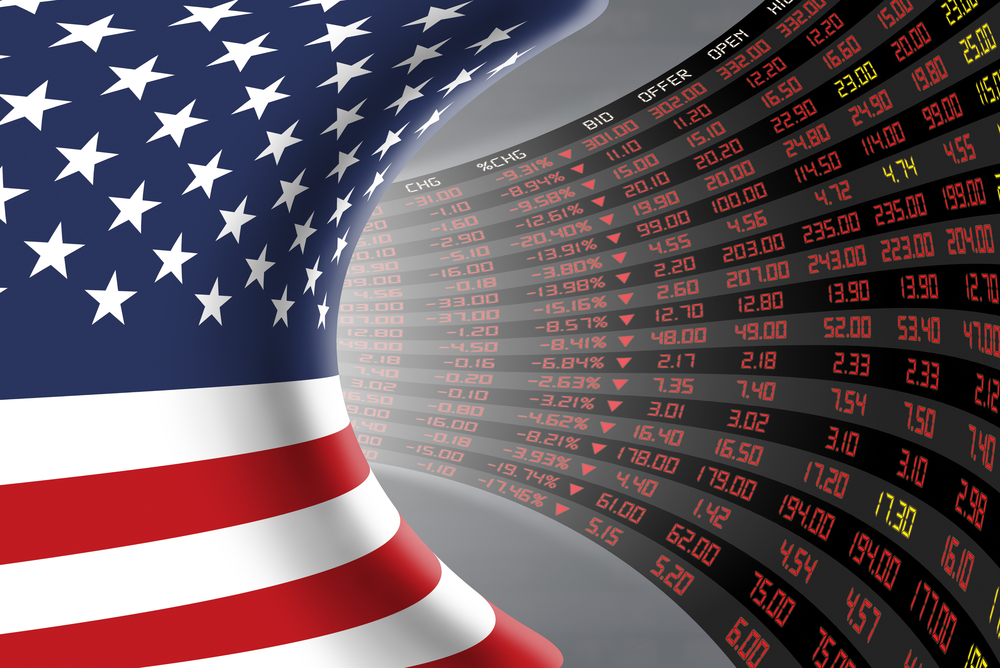There’s hardly a day goes by, when we don’t hear reports on the rising record USA equity indices, during 2017 the rise of the three main USA markets; DJIA, SPX and NASDAQ was unprecedented, an approx. 30% YoY growth across the board. With FAANG stocks (Facebook, Amazon, Apple, Google and Netflix) up over 40% during 2017. The rises were so often and so consistent during 2017, that whenever markets had a minimal pullback, of even less than one percent over a couple of trading sessions, then broadcasters such as Bloomberg looked on aghast.
The reasons for the boom in markets were two fold, both involved the administration’s fiscal policy stimulus; a huge tax cut and the promise of a huge infrastructure spend. The theory is that this two arrows attack would create a torrent of trickle down and help rise up middle America’s rust belt from the grave.
There’s also been another reason for markets booming in the USA, which prefaced the arrival of Trump into the Whitehouse; borrowing was extremely cheap for years and still relatively cheap in the first part of 2017. Many corps took advantage of the boom in cheap money to buy back their own stock with borrowed cash, thereby inflating the price further due to scarcity, directors and shareholders would then enjoy more rewards based on share price appreciation. This pattern has been the main driver to push markets to such heights over recent years, not just Trump’s policy or earnings. However, there may be a bump in the road regarding the equity boom that many equity index and forex traders may need to be aware of, and that many analysts have chosen to ignore and it involves the refinancing of debt.
The FOMC raised interest rates three times in 2017, the rate is now at 1.5%, many of the USA leading corporations will have raised funds, or refinanced current agreements, when the rate was at 0.75% at the start of 2017. The anniversary of refinancing is now approaching and the interest rate has since doubled. Furthermore, there’s more rate rises in the pipeline; according to the FOMC narrative delivered in the final two quarters of 2017, unless the USA administration wants to completely trash the dollar by encouraging the Fed/FOMC to reverse their current policy and begin to employ monetary stimulus again, primarily by lowering rates.
As forex traders we know that attempting to make predictions in relation to our industry and currencies, beyond a short time period, is fraught with danger. Looking back at 2017 there weren’t many forex analysts who suggested that the dollar index would collapse to a three-four year low despite Q.E. being withdrawn and the main interest rate rising to 1.5%. Therefore anyone trying to join the dots; by predicting the economic future of the USA in 2018, the value of equities and the forex markets, is simply taking an educated guess. There are so many variables, so many unexpected outliers that’ll undoubtedly take markets by surprise, that many experienced, successful traders refuse to predict, they simply trade what they see, not what they think.
The FOMC will have their first two day meeting next week, the general expectation is for a hold at the current rate at 1.5%. In the accompanying press release and public conference, they might voice opinions different to the treasury department, who claim the dollar is too high and stick to their plan to raise rates three more times in 2018, to begin a process of normalisation. If rates reach 2.25% by the year’s end, then major corps looking to refinance, or borrow money to engage in further share buy backs, will find a very different and difficult landscape from which to borrow money.
If we’re looking for clues as to when, where and how the value of the dollar on our forex markets and the value of equity markets might flip, in terms of their direction, then let’s keep an eye of the FOMC and news of any reports regarding major corps struggling to raise more funds, or pay back their existing debt.





